Thank you for supporting stroke research at Manchester
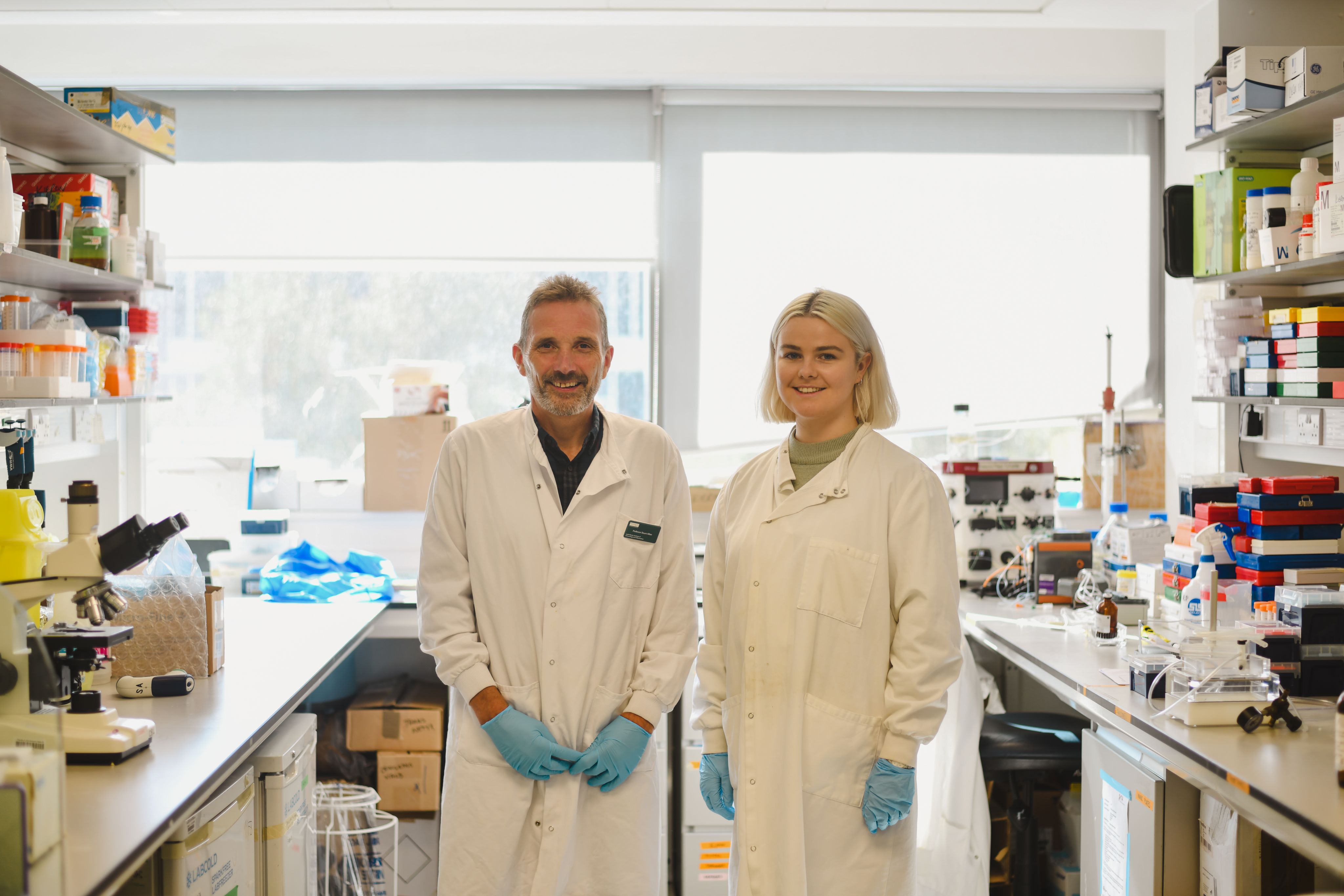
Thank you so much for supporting The University of Manchester's search for a brain haemorrhage treatment.
As you scroll down this page, you’ll find video messages from Professor Dame Nancy Rothwell, Professor Stuart Allan and the Manchester stroke research team’s newest recruit, Mary Newland.
It’s only thanks to you that we’ve been able to bring Mary on board. And by making this happen, you’ve brought us even closer to a breakthrough in haemorrhagic stroke treatment.
Towards the bottom of the page, there's an opportunity for you to ask the team any questions you have about their work, or simply send them a message of support.
We hope you enjoy seeing the difference you’re making right now to stroke research at Manchester. This page will continue to be updated with important news regarding the team’s work, so stay tuned for updates in the future.
Thank you so much for your support.
Professor Dame Nancy Rothwell welcomes Mary to the team.
Meet Mary
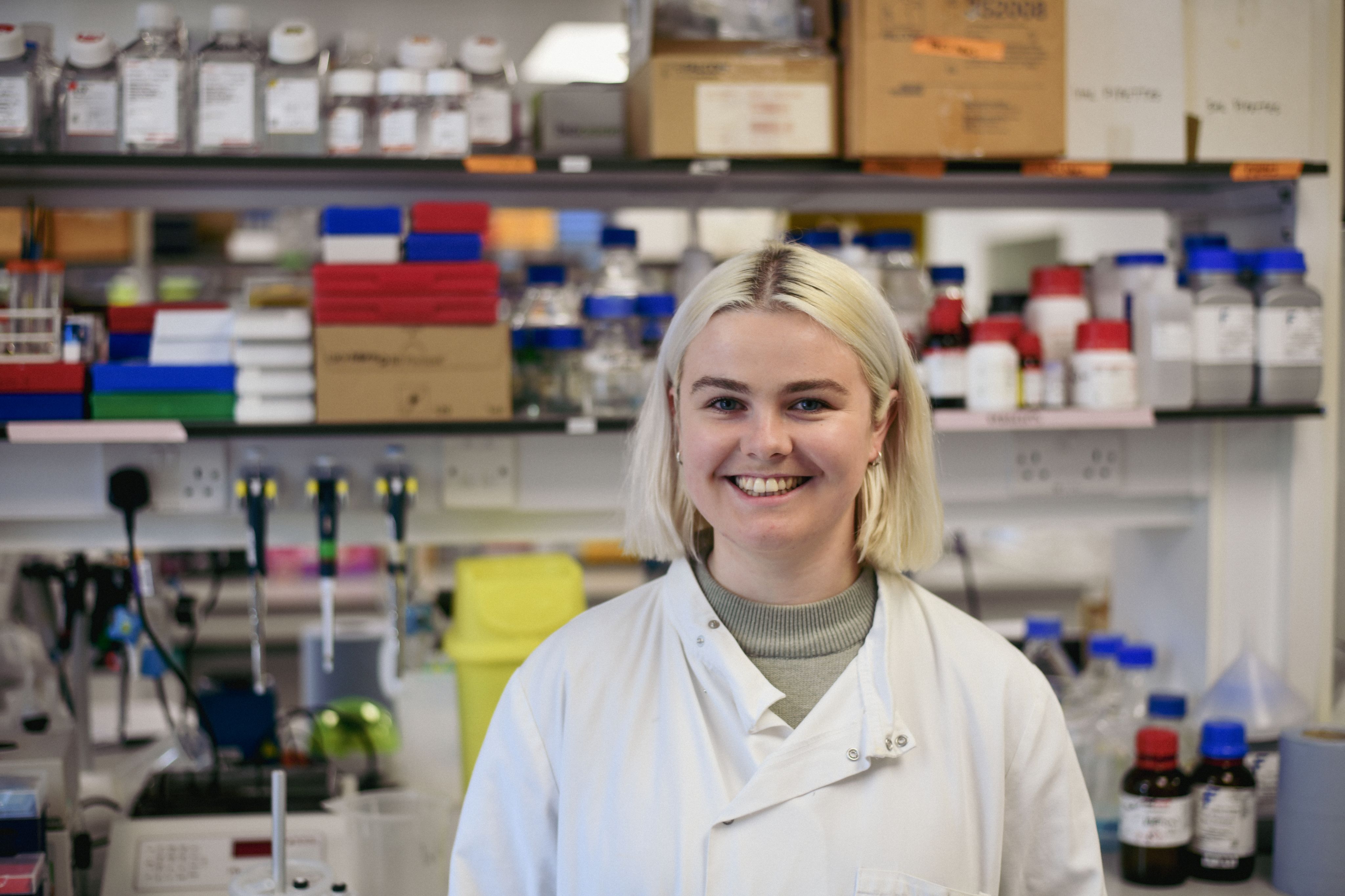
Watch Mary's message of thanks for your support
I'm Mary Newland, and thanks to you, I've recently taken up a brand new post at The University of Manchester.
I've joined Professor Stuart Allan's Neuroscience team as a postgraduate researcher. And for the next three years, I'll be working to find new treatments for haemorrhagic stroke.
I grew up in Altrincham, South Manchester and, throughout my school years, I was really interested in science, especially Biology.
My mum was a nurse for 30 years. Seeing her giving vaccinations or taking blood always fascinated me. I was always very intrigued and wanted to know more about it.
At school I wanted to do medicine. I liked science and I liked working with people so I thought that was the obvious choice. I didn’t know a career in research existed or what it involved. But as I spent time in the labs at undergraduate level, it planted the seed of a career as a researcher.
I remember the first Neuroscience lecture I went to and the lecturer said, “the first thing you need to know about neuroscience is that there is still so much of the brain that we don’t know.” I found that fascinating. It felt like one of the subject areas where there is the most to be explored.
I studied my master's degree at Manchester, and spent time in Professor Allan's labs. It's an inspiring place to be – with everyone laser-focused on improving patient outcomes and survival after stroke.
I was actually in the lab when I found out my application to join the team for my PhD had been successful. Professor Allan said he'd take my shout of delight as formal acceptance of his offer!
My parents were really proud. They were both so supportive during the process, and when I rang my dad to tell him, he was a bit wobbly in his voice!
Fundamentally, I want to improve people’s lives. The statistics around brain haemorrhage survival and the lack of treatment are startling, but our research feels like it’s on the cusp of something that will really help people. It’s an exciting time to get involved and make a positive impact.
The sheer size of the research group really stands out to me, as well as the collaborative aspect of it. It’s one of the biggest research groups in Manchester and with that comes so much shared expertise.
I just want to say thank you so much for supporting my PhD – and for making such an important contribution to our stroke research. It simply wouldn’t have been possible without you.
Over the next three years, I’ll work hard to do your donation justice. I’ll put my all into it and do my best, and I hope that together we’ll make progress and help drive stroke treatment forward.
I’m looking forward to updating you again soon further into my first year.
Thank you again,
Mary Newland.
“I’m so pleased to welcome Mary into our stroke research team.
She’ll bring fresh enthusiasm and ideas that will help move our research on haemorrhagic stroke further forward, and we can’t wait for her to get started.”
Professor Stuart Allan
Professor of Neuroscience, and Director of the Geoffrey Jefferson Brain Research Centre
Watch Professor Stuart Allan's update on the team's work
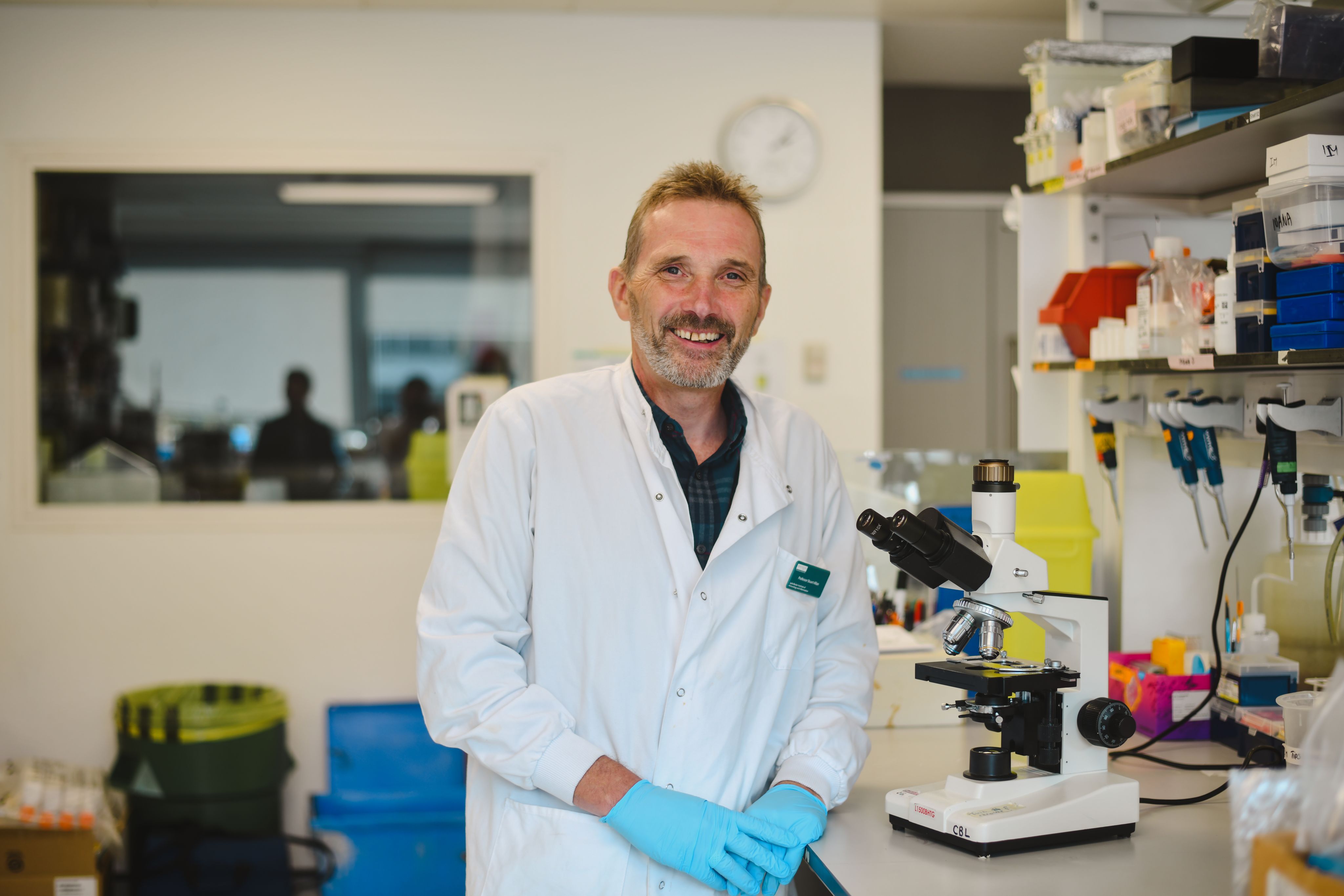
Your questions answered
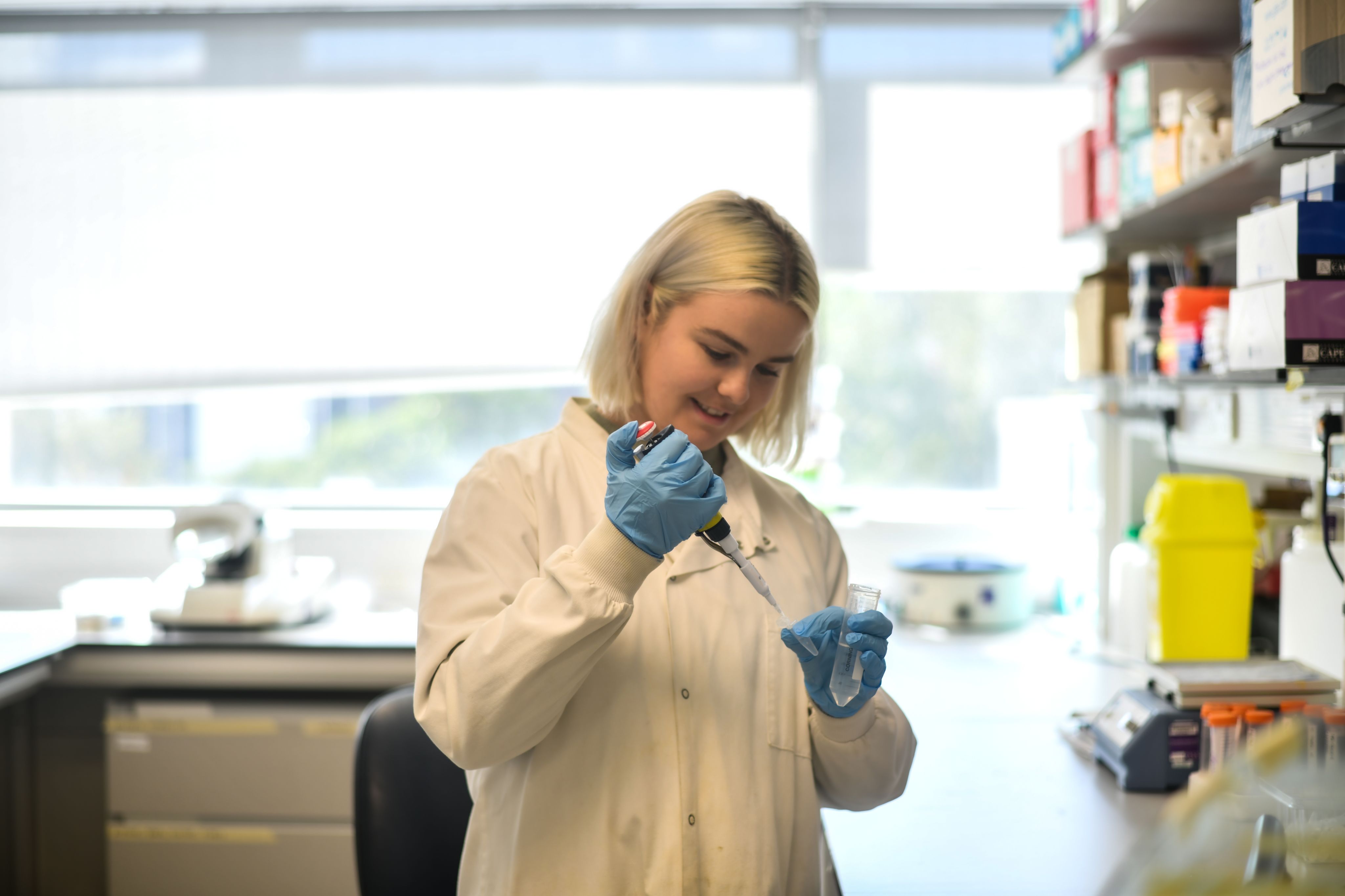
In October, we asked you to put your questions to the team. Thank you to everyone who responded.
Stuart and Mary loved reading your questions and kind messages of support. They have responded to your questions below.
Is your PhD focusing on a particular area of haemorrhagic stroke research? If so, could you please tell us more.
Mary: I’ll be looking into the immune and inflammatory changes that happen in the brain after intracerebral haemorrhage, and investigating new treatments that target this damaging inflammation.
Stuart: There is a lot of evidence to suggest that anti-inflammatory treatments might be a good way to reduce the death of brain cells, and this is what I will be testing.
Are you looking at strategies to reduce incidence of haemorrhage?
Mary: Our immediate focus is to find a treatment for brain haemorrhage. However, the understanding of the mechanisms driving haemorrhagic stroke that we will gain through investigating new therapies can be used to inform stroke prevention in the future.
Stuart: It is well recognised that increased blood pressure is the major risk factor for brain haemorrhage. Therefore there is a lot of focus on having better control of blood pressure to reduce the incidence of brain haemorrhage, though this is not an area the Manchester group works on specifically.
Are you investigating genetic links? My family have a propensity to haemorrhagic strokes and aneurysms
Mary: I am not specifically looking into genetic contributors myself, but the wider group is certainly working in collaboration with other groups to investigate this.
Stuart: Genetics is not an area the stroke research group in Manchester have worked on. However, some new research on a type of stroke called cerebral small vessel disease is starting that will try and understand the genes involved. This is being led by a PhD student working with Paul Kasher, a lecturer in our group.
Please feel free to continue using the Slido page to submit any questions you have about the work that the Manchester stroke research team is undertaking.
Your fellow supporters will be able to view your question, so please don't include any information you wouldn't want them to read.
Thank you
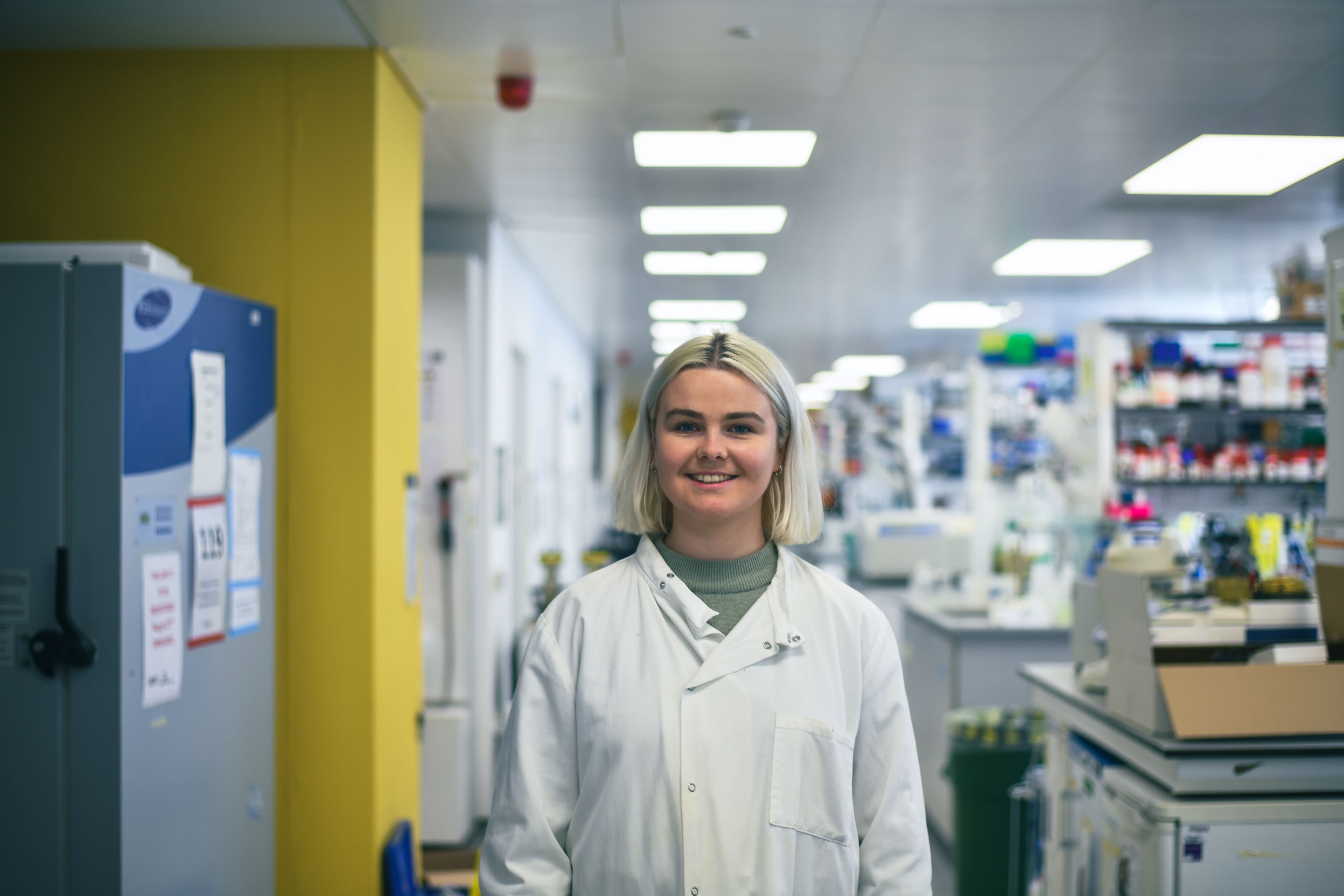
Thank you again for supporting stroke research at Manchester. You're bringing us closer to a breakthrough in finding an effective treatment for haemorrhagic stroke.
This page will be updated with news on Mary's progress and the team's overall work in the weeks to come, so please take a moment to update your email address with us so we can notify you.
How we use your information:
The Division of Development and Alumni Relations (DDAR) processes data in accordance with all relevant data protection legislation. Our full Privacy Notice is available here:
your.manchester.ac.uk/privacy
Division of Development and Alumni Relations
The University of Manchester
Oxford Road
Manchester
M13 9PL
United Kingdom
Email: supporters@manchester.ac.uk
Tel: +44 (0) 161 306 3066
www.manchester.ac.uk/give